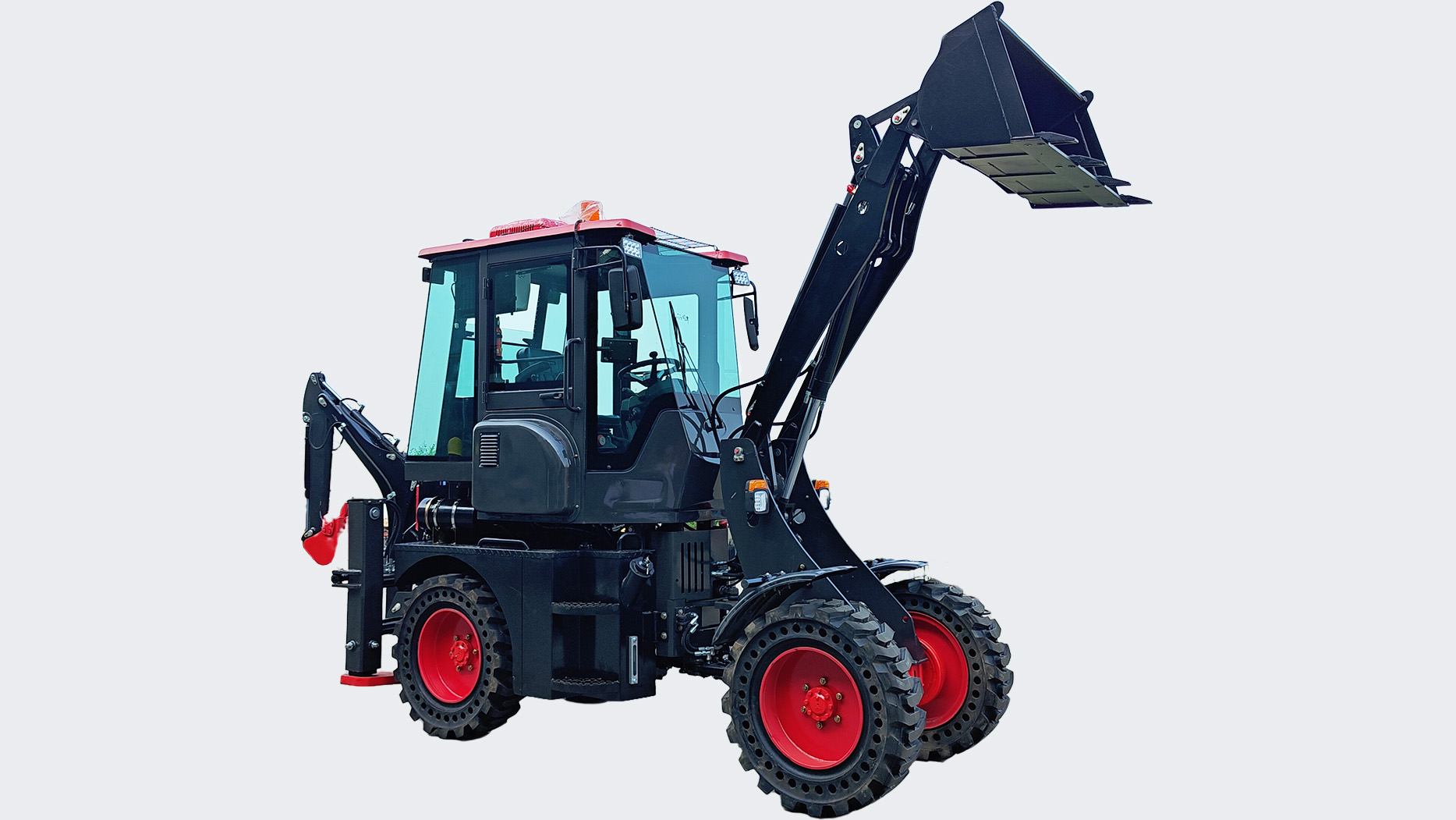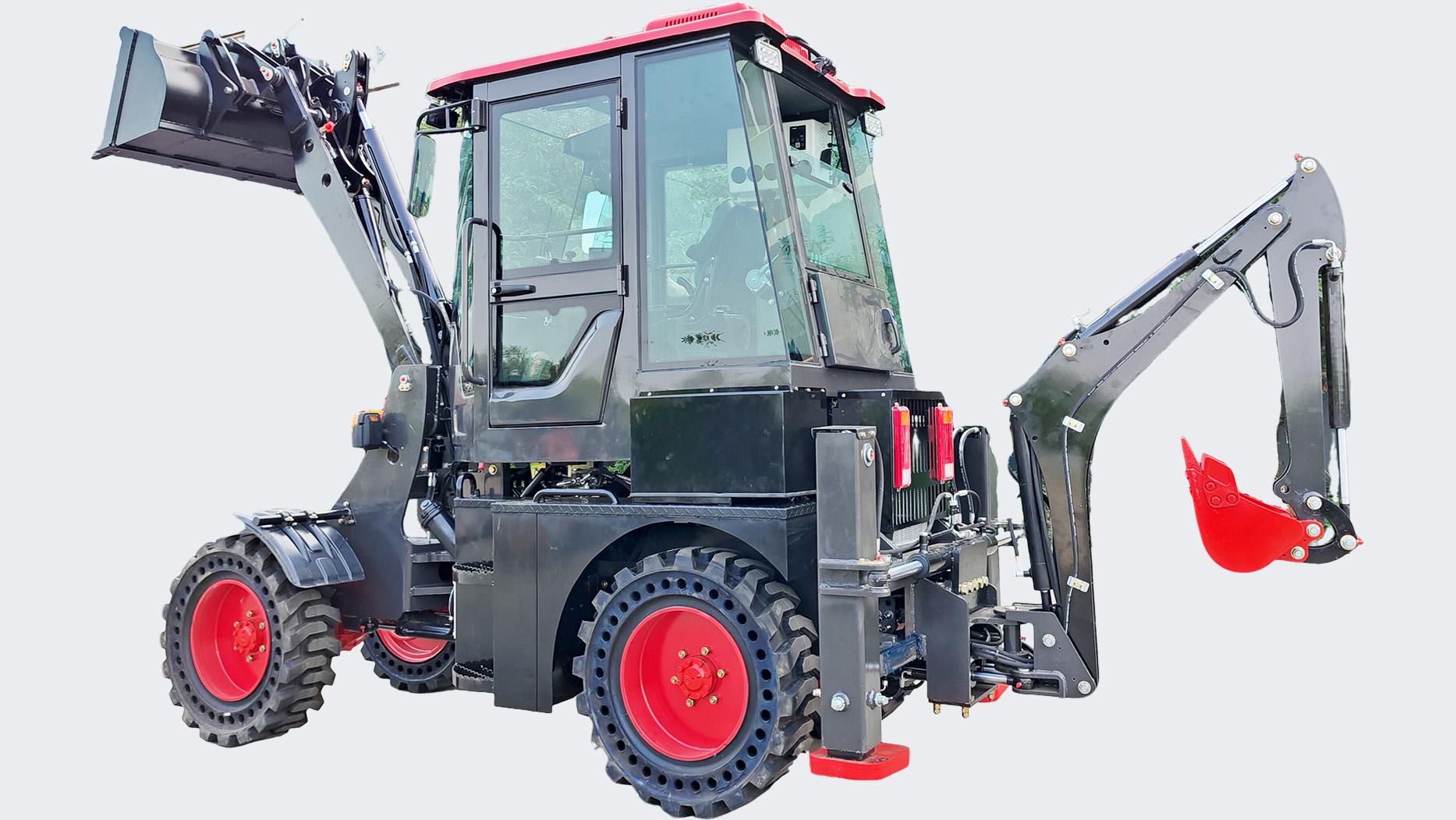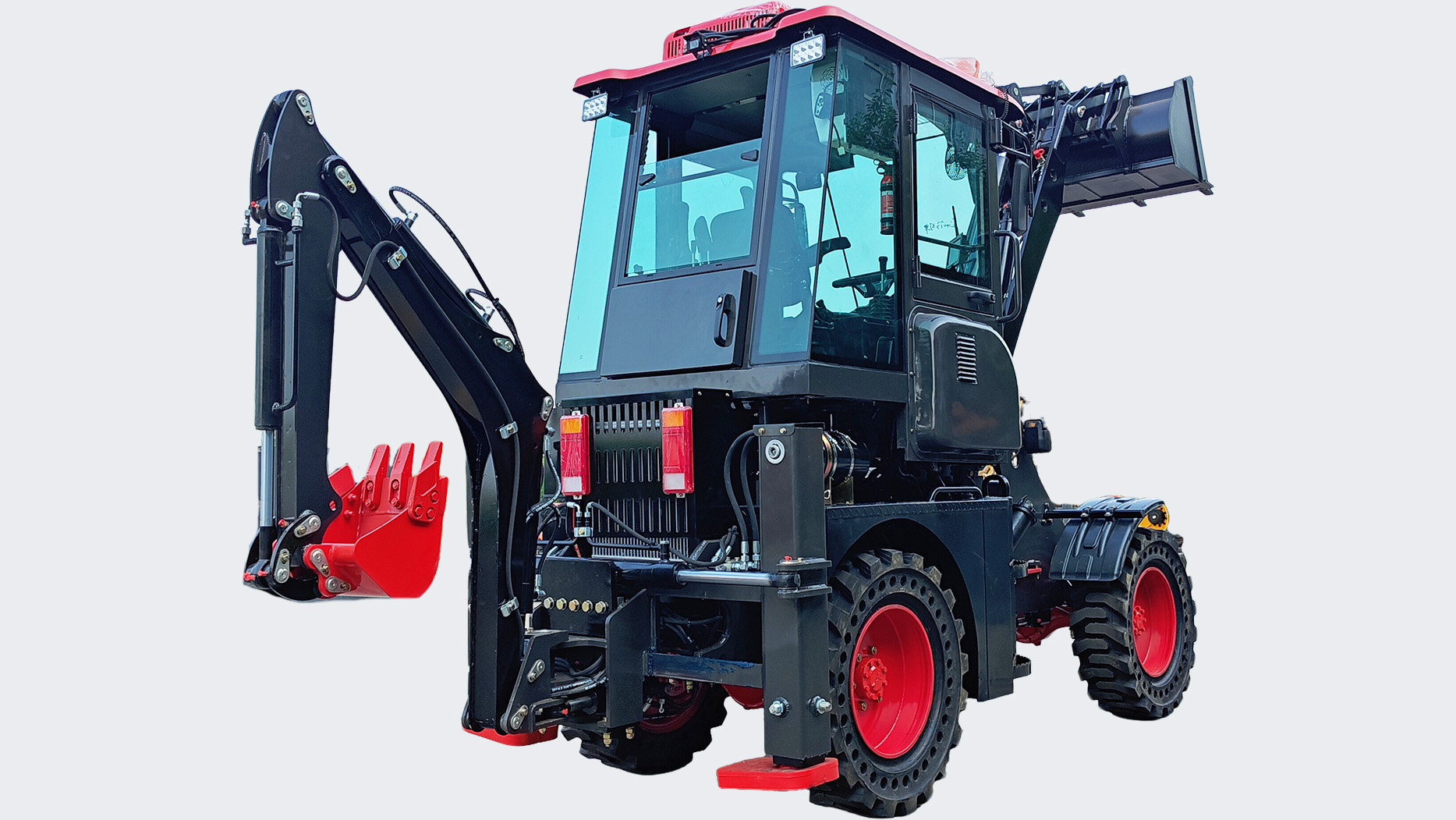This comprehensive guide will break down the various factors that influence backhoe loader pricing, provide realistic price ranges, and offer practical advice on how to secure the most cost-effective solution for your projects.
Key Factors Influencing Backhoe Loader Price
The price tag on a backhoe loader is a reflection of many attributes. Here are the primary considerations:
New vs. Used Condition: This is arguably the most significant determinant of price.
New Backhoe Loaders: These come directly from the factory with a full manufacturer's warranty, the latest technology, enhanced fuel efficiency, advanced hydraulics, and often superior operator comfort features. While they represent a higher initial investment, they offer peace of mind, reliability, and reduced maintenance costs in the short term.
Used Backhoe Loaders: The used market offers a much broader range of prices. A used backhoe's price is heavily influenced by its age, total operating hours, overall mechanical condition, maintenance history, and previous application. You can find older models for a fraction of the new price, but they may come with higher risks of breakdowns and increased ongoing maintenance expenses.
Brand and Manufacturer Reputation:
Established, premium brands like Caterpillar, JCB (which invented the backhoe loader), John Deere, Case, Komatsu, and Volvo typically command higher prices due to their proven reliability, robust build quality, global support networks, advanced engineering, and often higher resale values.
Newer or less established brands, particularly those from emerging markets, might offer lower initial prices but could pose challenges in terms of parts availability, service, and long-term durability.
Size, Capacity, and Specifications:
Backhoe loaders come in various sizes, from compact "mini" models designed for tight spaces to heavy-duty machines built for demanding excavation and loading tasks.
Compact/Mini Backhoes: These are smaller, often lower horsepower (e.g., 20-60 HP), with shallower digging depths (e.g., 8-12 feet). Their smaller footprint and lower lift capacities make them suitable for residential landscaping, utility work, and confined urban projects. Their price point is significantly lower.
Standard/Mid-Size Backhoes: This is the most common category, offering a balance of power (e.g., 70-100+ HP), digging depth (e.g., 14-16 feet), and lift capacity. These are versatile for general construction, municipal work, and larger landscaping jobs. This is where most buyers focus, and prices vary widely based on features.
Heavy-Duty/Large Backhoes: These are robust machines with higher horsepower (e.g., 100+ HP), deeper digging depths (e.g., 17+ feet), and greater lifting capabilities, designed for continuous, demanding work. Naturally, these come with the highest price tags.

Features and Technology:
Basic vs. Premium Features: Base models will always be cheaper. Adding features like 4-wheel drive, extendable dipper sticks (extendahoe), pilot controls (joystick operation), ride control systems (for smoother travel), air-conditioned cabs, hydraulic quick couplers, advanced telematics, and specialized attachment packages will significantly increase the price.
Engine & Emissions: Engines that meet the latest emissions standards (e.g., Tier 4 Final) often come with more advanced technology, which can add to the cost.
Included Attachments:
The "lowest price" often includes only a standard digging bucket and a general-purpose loader bucket. Adding specialized attachments like hydraulic hammers (breakers), augers, grapples, cold planers, compactors, or multi-purpose buckets will add considerably to the overall cost.
Geographic Location and Dealer:
Prices can vary by region due to transportation costs, local market demand, and competitive dealer pricing. Dealers may also offer different financing options, service packages, and warranty terms.
Market Conditions:
Like any major purchase, the price of a backhoe loader can be influenced by economic conditions, supply chain issues, and demand. End-of-quarter or end-of-year promotions might offer opportunities for savings.
Realistic Price Ranges for Backhoe Loaders (Estimates for 2025)
It's crucial to understand these are broad estimates and actual prices will vary. Always obtain specific quotes from dealers.
New Compact/Mini Backhoe Loaders: You might find very basic, smaller models or tractor-loader-backhoe (TLB) attachments for existing tractors starting from $25,000 to $50,000. Dedicated compact backhoe loaders from reputable brands often start in the $50,000 to $80,000+ range.
Example: Some sub-compact TLBs can be found for around $27,000, while compact backhoes like JCB's 1CXT might start around $75,000.
 New Standard Backhoe Loaders: The majority of new standard-sized backhoe loaders from leading manufacturers will typically start from $90,000 to $150,000+. Fully equipped models with all the bells and whistles can easily exceed this range.
New Standard Backhoe Loaders: The majority of new standard-sized backhoe loaders from leading manufacturers will typically start from $90,000 to $150,000+. Fully equipped models with all the bells and whistles can easily exceed this range.
Example: A new Cat 420 or John Deere 310-series might begin around $100,000 - $120,000, escalating with features.
Used Backhoe Loaders: This is where the price spectrum is widest.
Older Models (10+ years old, high hours): You might find machines in decent working order for $20,000 to $50,000. The "lowest price" for a truly functional, older unit could sometimes dip into the $10,000-$20,000 range, but these will likely require significant maintenance and potentially major repairs.
Mid-Age Models (5-10 years old, moderate hours): These often represent a good balance of cost and remaining useful life, typically priced from $50,000 to $90,000.
Newer Used Models (1-5 years old, low hours): These can be a fantastic value, offering many of the benefits of a new machine but at a reduced price, generally ranging from $80,000 to $130,000+.
Examples from recent listings: Used Cat 420s (2014-2019) often fall into the $50,000-$80,000 range depending on hours and condition. Very old models (e.g., 1990s-early 2000s) can be found for under $30,000.
How to Find the "Lowest Price" (or Best Value) for Your Backhoe Loader
Instead of just seeking the absolute lowest price, focus on securing the best value for your specific needs.
Define Your Needs Clearly:
What tasks will the backhoe perform? (e.g., light trenching, heavy excavation, material loading).
How often will it be used? (e.g., daily, weekly, occasionally).
What are the typical ground conditions?
What are your budget constraints for both purchase and ongoing operational costs?
Research Thoroughly:
Online Marketplaces: Websites like Equipment Trader, Machinery Trader, Ritchie Bros., and dealer websites are excellent resources for comparing new and used prices.
Manufacturer Websites: Explore specs and base models from different brands.
Industry Publications: Read reviews and comparisons.
 Consider Total Cost of Ownership (TCO):
Consider Total Cost of Ownership (TCO):
The purchase price is just one part of the equation. Factor in fuel consumption, maintenance, parts availability, resale value, insurance, and financing costs. A slightly more expensive, fuel-efficient, and reliable machine might have a lower TCO in the long run.
Get Multiple Quotes:
Contact several authorized dealers for new machines. Don't be afraid to negotiate.
For used machines, explore various sellers (dealers, auctions, private sellers).
Thoroughly Inspect Used Machines:
If buying used, always perform a meticulous inspection of the engine, hydraulics, transmission, chassis, pins, bushings, tires, and operator cabin. Review maintenance records. If possible, hire a qualified mechanic to perform a pre-purchase inspection.
Explore Financing and Leasing Options:
Dealers often offer competitive financing rates or leasing programs that can make a new machine more accessible or improve cash flow. Compare these options carefully with traditional bank loans.
Consider Renting:
For short-term projects or infrequent use, renting a backhoe loader can be significantly more cost-effective than purchasing, eliminating ownership costs like maintenance, storage, and depreciation.
The Value Proposition of a Backhoe Loader
Regardless of the price, investing in a backhoe loader offers undeniable value for businesses that require its unique capabilities:
Unmatched Versatility: It's two machines in one – a powerful excavator for digging and a robust loader for moving and lifting. This reduces the need for multiple pieces of equipment.
Maneuverability: Its ability to move under its own power at decent speeds and its relatively compact size (compared to separate excavator/loader setups) make it efficient for various job sites.
Cost-Effectiveness: For many small to medium-sized projects, a backhoe loader offers a lower capital investment and operational cost than purchasing a dedicated excavator and a separate wheel loader.
Conclusion: Beyond the Lowest Price, Towards the Best Investment
While the quest for the "lowest price" of a backhoe loader is a natural starting point, a truly smart acquisition focuses on the best value. By understanding the diverse factors that influence pricing—from its condition and brand to its features and the nuances of the market—buyers can make informed decisions. Whether you opt for a well-maintained used model or a brand-new machine with the latest technology, the goal is to select a backhoe loader that not only fits your budget but also reliably meets your operational demands, ensuring efficiency, productivity, and long-term success on your projects.
Post time:Jun.09.2025
